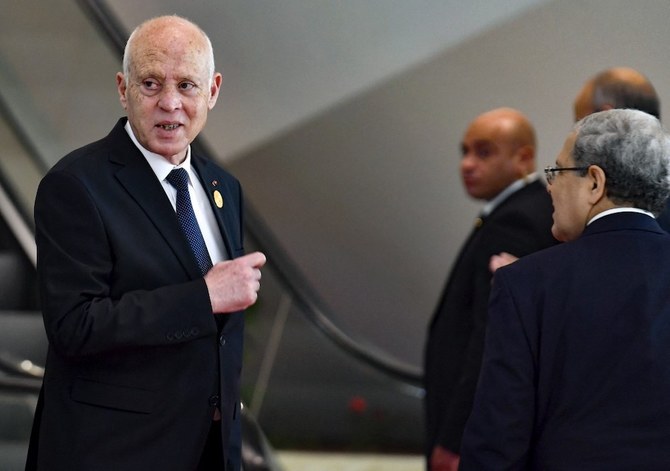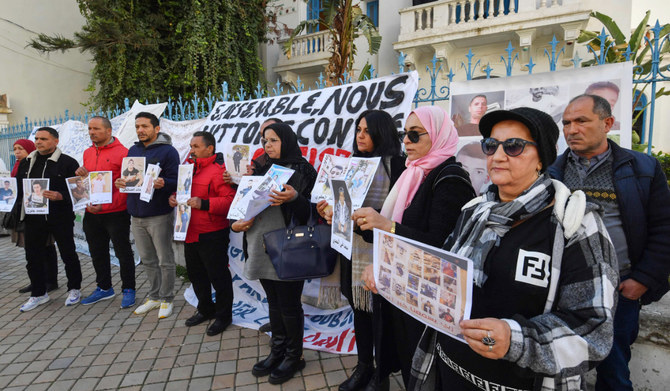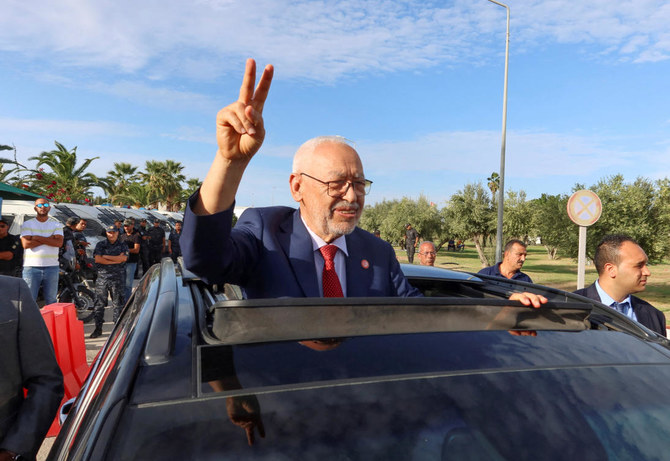TUNIS: Tunisian President Kais Saied named Kamal Feki, the former governor of Tunis, as his new interior minister on Friday, just hours after Taoufik Charfeddine resigned from the post, amid a crackdown of prominent opposition figures that has prompted international ire.
Tunisian interior minister Taoufik Charfeddine, a close aide of President Kais Saied, announced Friday he had resigned to spend more time with his three children following the death of his wife last year.
Charfeddine, 54, who had held his post since October 2021, told reporters he wished to thank the president for “his understanding and for allowing me to be relieved of my duties.”
“The time has come for me to dedicate myself to this responsibility she left me,” he said.
Replacing Charfeddine as interior minister is Kamal Feki, governor of Tunis since 2021 and also part of Saied’s inner circle.
A former lawyer, Charfeddine was a key figure in the election campaign that propelled the previously little-known Saied to the presidency in 2019.
After Saied froze parliament and sacked the then-government in a dramatic July 2021 move against the sole democracy to emerge from the Arab Spring uprisings, Charfeddine became a close adviser.
As the president pushed through sweeping changes to the country’s political system, concentrating near-total power in his office, Charfeddine was one of the most outspoken defenders of Saied’s power grab.
Saied’s office regularly released video footage of the two men’s meetings in the presidential palace.
During the wave of arrests that accompanied Saied’s power grab, Charfeddine held news conferences to defend the incarceration of opposition politicians.
When the vice president of the Islamist-inspired Ennahdha party, the largest in parliament before its dissolution by Saied, went on hunger strike to protest his detention, Charfeddine alleged that terrorism fears had forced the security forces to respond.
“There were fears of acts of terrorism targeting the country’s security and we had to act,” the minister said last year of the arrest of Noureddine Bhiri, a former justice minister.
Last month, Charfeddine was by Saied’s side as Tunisia faced an international outcry over a tirade by the president against illegal migrants from sub-Saharan Africa.
“There is no question of allowing anyone in an illegal situation to stay in Tunisia,” the president said in one of his videotaped meetings with the minister.
“I will not allow the institutions of the state to be undermined or the demographic composition of Tunisia to be changed.”
The president’s speech two nights previously had triggered a wave of violence against African migrants and prompted several West African countries to organize repatriation flights for fearful nationals.
On March 8, more than 30 Tunisian non-governmental organizations demanded an apology from Charfeddine after he branded as “traitors” the president’s many critics in the private sector, the media and trade unions.
They accused him of using the “language of threat and intimidation” to “sow division” among Tunisians as part of a “dangerous populist discourse that foreshadows a police state” like the one overthrown in the country’s 2011 uprising.
Reuters






















